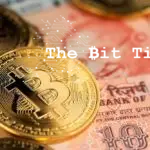R. Kiyosaki on Citibank tokenization: ‘Bye bye Bitcoin and USD?’
Although he has praised Bitcoin (BTC) as one of the best assets to invest in to protect oneself against the looming financial crisis, Robert Kiyosaki seems uncertain about the future of the maiden cryptocurrency following a recent blockchain project announcement by Citibank.
Specifically, the author of the best-selling personal finance book ‘Rich Dad Poor Dad’ has commented on Citibank’s future tokenization of client deposits for faster cross-border transactions, wondering what it meant for both Bitcoin and the United States dollar, in an X post published on September 26.
Citibank tokenization project
Indeed, the prominent investment bank has debuted a pilot for turning customer deposits into digital tokens using a private blockchain with an aim to provide “real-time, always-on, next-generation transaction banking services” to institutional clients, according to Citi global head of services Shahmir Khaliq.
As Citi’s head of digital assets, Ryan Rugg, explained:
“With the new service, if it’s 5:00 p.m. in the U.S. and 5:00 a.m. in Singapore, but you need to get money there, you can send that immediately, within seconds.”
In his post, Kiyosaki seems to question whether this could endanger the position of Bitcoin as the faster and more convenient payment method than traditional banking. However, DigiBuild CEO Robert J. Salvador pointed out that “this doesn’t change anything for Bitcoin or its value proposition. If anything, it continues to drive adoption and usage of crypto.”
Meanwhile, in late August, Citibank shared its new edition of the ‘Securities Services Evolution’ white paper, which listed several bullish factors for the crypto market’s growth, including interest in Distributed Ledger Technology (DLT) and digital asset offerings, as well as growing confidence in digital money, including central bank digital currencies (CBDCs) and stablecoins.
Disclaimer: The content on this site should not be considered investment advice. Investing is speculative. When investing, your capital is at risk.





Comments
Post a Comment